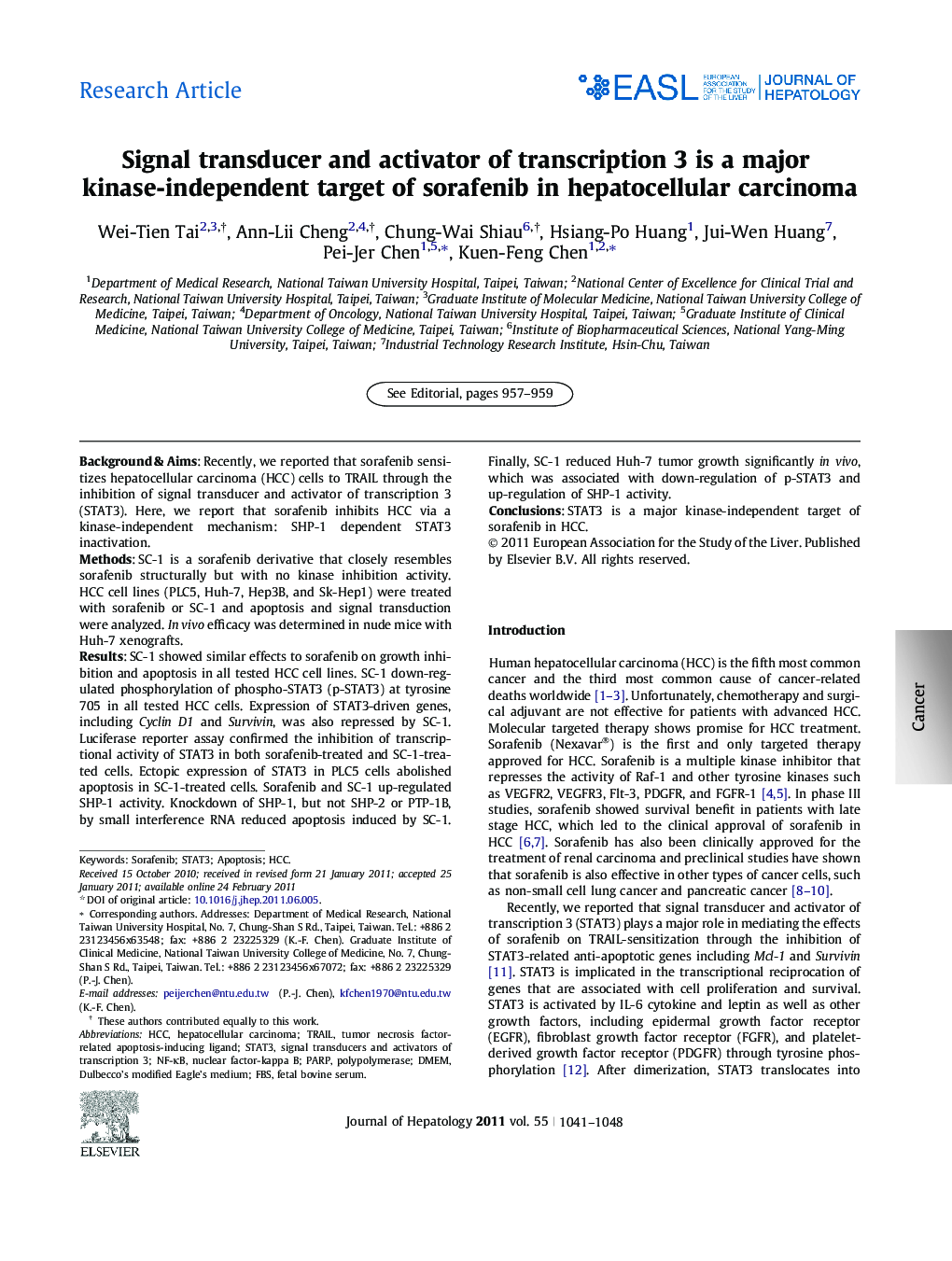| Article ID | Journal | Published Year | Pages | File Type |
|---|---|---|---|---|
| 6105897 | Journal of Hepatology | 2011 | 8 Pages |
Background & AimsRecently, we reported that sorafenib sensitizes hepatocellular carcinoma (HCC) cells to TRAIL through the inhibition of signal transducer and activator of transcription 3 (STAT3). Here, we report that sorafenib inhibits HCC via a kinase-independent mechanism: SHP-1 dependent STAT3 inactivation.MethodsSC-1 is a sorafenib derivative that closely resembles sorafenib structurally but with no kinase inhibition activity. HCC cell lines (PLC5, Huh-7, Hep3B, and Sk-Hep1) were treated with sorafenib or SC-1 and apoptosis and signal transduction were analyzed. In vivo efficacy was determined in nude mice with Huh-7 xenografts.ResultsSC-1 showed similar effects to sorafenib on growth inhibition and apoptosis in all tested HCC cell lines. SC-1 down-regulated phosphorylation of phospho-STAT3 (p-STAT3) at tyrosine 705 in all tested HCC cells. Expression of STAT3-driven genes, including Cyclin D1 and Survivin, was also repressed by SC-1. Luciferase reporter assay confirmed the inhibition of transcriptional activity of STAT3 in both sorafenib-treated and SC-1-treated cells. Ectopic expression of STAT3 in PLC5 cells abolished apoptosis in SC-1-treated cells. Sorafenib and SC-1 up-regulated SHP-1 activity. Knockdown of SHP-1, but not SHP-2 or PTP-1B, by small interference RNA reduced apoptosis induced by SC-1. Finally, SC-1 reduced Huh-7 tumor growth significantly in vivo, which was associated with down-regulation of p-STAT3 and up-regulation of SHP-1 activity.ConclusionsSTAT3 is a major kinase-independent target of sorafenib in HCC.
